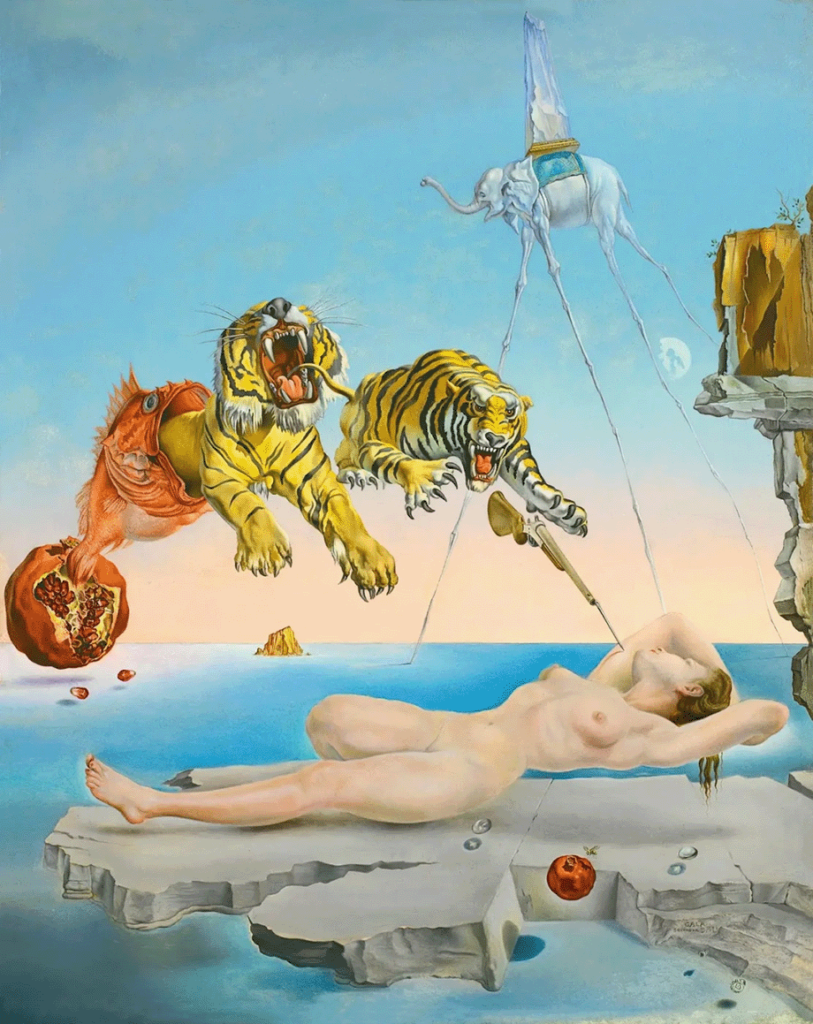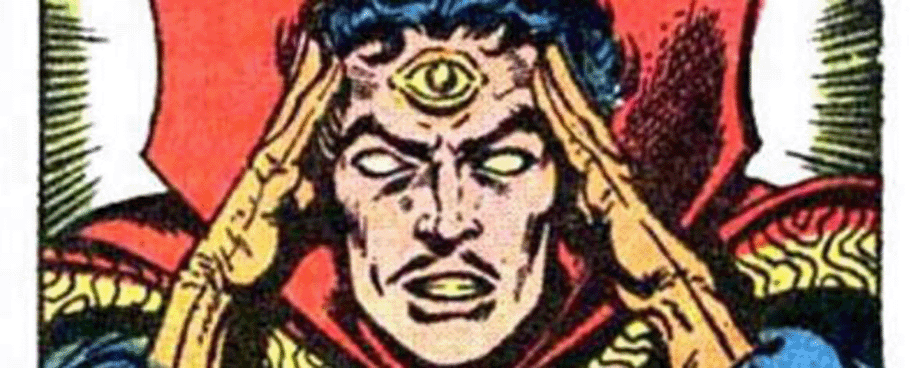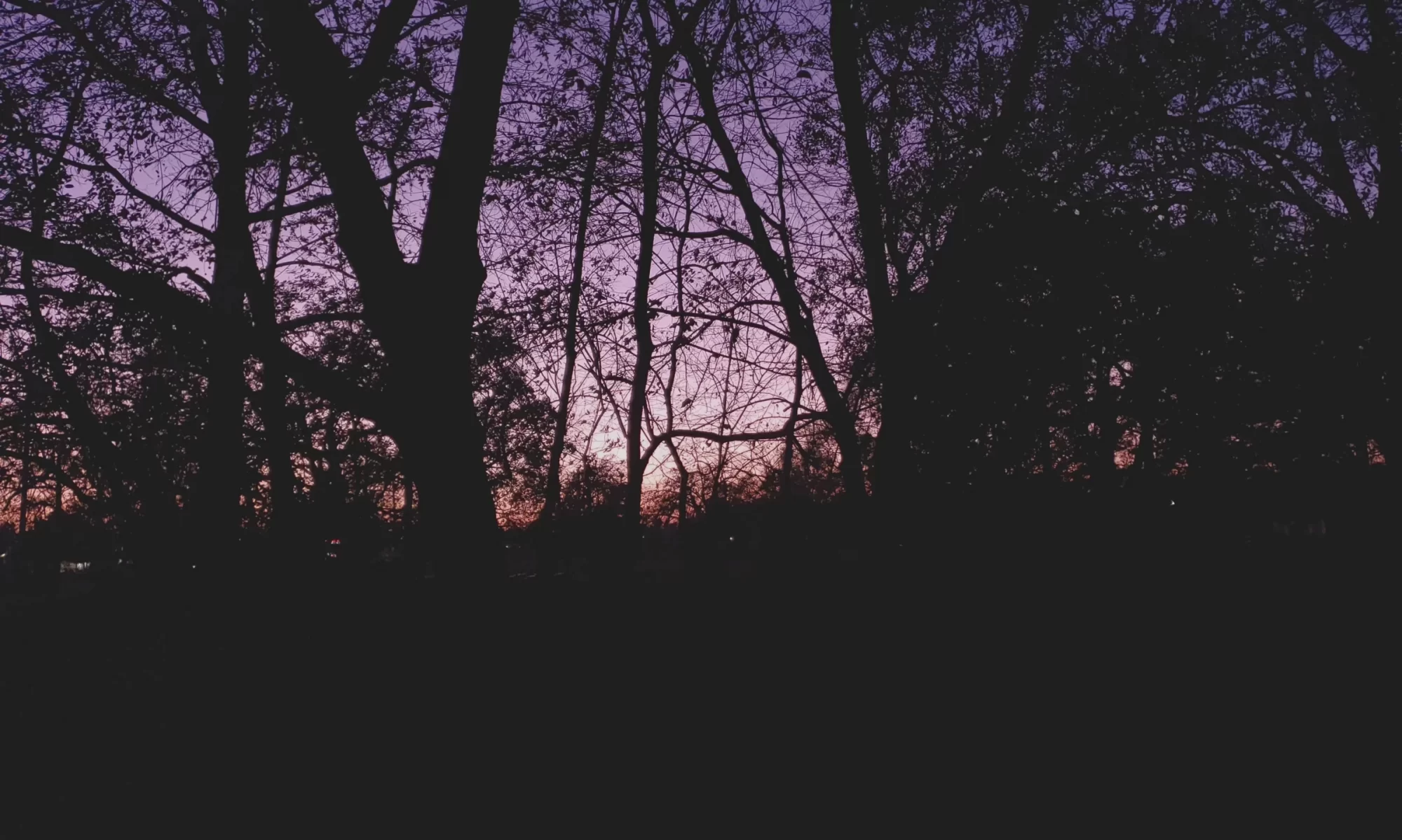I am writing to you from the future. By my calendar, this article will publish on August 3rd, 2022, and I will have written it and moved on by the time you read it for the first time.
By the time August 3rd gets here, I’ll be working on an article for late October or possibly even November. What I am doing here is always in the future, even though you’re reading it in the past.
Sounds a bit backward doesn’t it. I’m really writing this now, for future publication on August 3rd. So really it’s written in the past for the future, and you’ll read it in the future.
That’s how things work, right? Linear time and all that.
That is a very unmagic way of thinking.
Tying ourselves to one place and time is surrendering to an objective reality, with all it’s rational rules, interlocking causality, and very little that is wonderful and unexplainable. It’s analogous to being on a one-lane one-way road, with no exits, and nothing to see but the same damned boring road in front of you.
I personally prefer to pull over every now and again, and take in the sights. Maybe even have lunch and meet the locals. Marvel at the largest ball of twine in the Tri-State Area. It broadens the spirit and refreshes the soul. That’s what travel is all about.
I am speaking about astral travel, of course. The art of displacing ones identity outside the physical limitations of objective reality has been practiced since ancient times. Modern psychology calls this an altered state of consciousness.
There are a lot of altered states of consciousness. For example, your awareness in that moment when you sneeze is different from the moment before or afterward. It passes so very quickly that we hardly notice the difference, but it’s there. Your consciousness when you’re hungry and your blood sugar is low is different from when you’ve just eaten and the brain is lulling you into a torpor so it can digest the meal. We dismiss these mundane fluctuations in our perceptions because they are part of everyday activity. Our brain, however, is different, it reacts differently, decides differently, and perceives differently. We are rarely as fully awake, alert, and fully focused as we imagine we are.
The human dream state is sometimes acknowledged as a basic form of astral projection. We are encountering things that didn’t exist in the real world, but generally we are not aware that we are in this state. We’re not conscious of dreaming when we dream, only when we wake up. Because we are only pmartially invested in the dream world, our worst consequence may be a nightmare, or other frightening nocturnal event.

Aside from the usual fabulous beasts, the painting plays with time, space, and proportion as we experience it in the dream world. Gravity does not apply, Gaia (she was Dali’s wife and chief model) floats above a landscape that could make her a giantess. Distant Gibraltar rises, about to stomped by the Space Elephant (Dali’s name). A tiger leaps out of the mouth of another tiger that leaps from a fish that springs from a giant pomegranate. The actual pomegranate, with the eponymous bee, hovers just in front of the scene lower right among floating rocks.
From the psychoanalytical perspective this is happening in Gaia’s mind and are distortions of remembered images. From the occult perspective, it is happening on the astral plane and the things are very real.
Folklore frequently says that we never die in our dreams, because if we did it would kill us. Of course, like the afterlife itself, there are few people who have the experience to confirm or deny this assertion.
Science says we hardly remember most of what we dream about, so it’s possible we die all the time and just don’t remember we’re dead. Given the theory that ghosts frequently remain because they are not aware they’ve died, we may all be a bunch of dream zombies. That is both fascinating and horrifying to me. It’s a wonder I ever sleep at all.
Sleep is an altered state of consciousness all it’s own. And it’s a weird one. We’re not dead, but aside from some simple autonomic processes like breathing and cardiac activity, we might as well be. We don’t move. We don’t talk, hear, see, smell, or otherwise respond. Fortunately it is usually easier to leave sleep than enter it. A loud noise, or gentle shaking, is enough to rouse the sleeper into a more or less conscious state, though it may take a few moments to orient and react with full wakefulness.
Then there are the states that are like sleep but aren’t sleep. Coma, absent brain death, is like a deep and prolonged sleep, which defies efforts to arousal. Yet coma patients have reported being aware of the presence of people in the room with them, and remember conversations, Sleep doesn’t work that way.
There’s somnambulism, which is a cooler sounding term than sleep walking. People who walk in their sleep, get up, walk around, sometimes have eyes wide open, dress themselves, speak and answer questions, and even have unlocked the door and left the house, all without any awareness. Folklore also says you shouldn’t wake a sleep walker because it will kill them. As far as I know this is completely without scientific merit. There’s a lot of folklore about sleep and death, probably because the two states are so eerily similar. And we’re all dream zombies.
I experienced sleep walking in my younger years, as well as having very bad insomnia. Later in life, when I was attempting to get healthy and removed the stimulants from my bloodstream, I started falling asleep in traffic. I was finally diagnosed with severe sleep apnea. I now sleep in scuba gear and lull my good lady wife into slumber with the dulcet tones of Darth Vader breathing. But I sleep.
The “really bad snoring” that is characteristic of the type of sleep apnea I suffer from has been around since childhood, and probably also afflicted my father and grandfather. To what extent it was responsible for my childhood sleep disorders, I will never know. The diagnosis was unknown to the doctors of rural Appalachia. I tend to think it didn’t help to calm my overactive brain and the severe anxiety that an overactive brain produces.
So naturally, in exhaustion and desperation, I tried to find any means of quieting the noise in my head. Hypnosis was a natural choice. There wasn’t any real good reference on hypnosis available to a pre-teen kid in the mountains of Eastern Kentucky, What I started with was the bad Hollywood hypnosis we see at least once in the life of every situation comedy:
“You are getting sleeeeeppppyyyyy…..”
It didn’t work. Well, actually, it sort of did.
I was trying very hard to make it work. I was trying oh so very hard to make myself get sleepier and sleepier and sleepier.
I didn’t get sleepier.
In trying so hard, however, I became hyper-focused, and that is an altered state of consciousness in itself. Although my desired goal of becoming drowsy and drifting off on the boat with Winkin’, Blinkin’,and Nod was for naught, I had effectively silenced the chatter in my brain and just concentrated on the one thing.
This is meditation. It is the directed and controlled contemplation of a single thought, in an effort to remove all external distractions. Once in this state, it is possible to open up the mind free of background noise, and experience heightened perceptions and potentially extradimensional realities.
When we first attempt to enter an altered state of consciousness in this way, it’s difficult. The brain, absent distraction, invites distraction in. This is you waking up at 3 AM wondering if you left your car keys in the refrigerator. It’s the one off-key instrument in the whole orchestra being the tuba. It’s infuriating and frustrating and pulls us out of the moment and shatters that whole inner peace thing we started meditating for in the first place.
That frustration can be a wall. We concentrate on the frustration, and not on putting it aside, starting again, breathing in, breathing out. Breathing in, breathing out. In. Out.
Sometimes that is what it takes. Ultimately that is what worked for me, was just concentrating on my breathing (and snuffling and coughing…it was not an easy road) and with every breath just relaxing a little bit further. There are a lot of mental exercises that amplify this technique, and others may work for you that won’t work for me.
Likewise, there are physical techniques such as yoga or tai chi that either put the body in an unordinary position, or focus on repeating movements, in order to jolt the brain into an altered state. Acupuncture works on various points of the body to address the flow of chi, and thus may also be a method to a different awareness.
Certainly there are altered states that result from the consumption of certain compounds, whether it is mugwort tea or lysergic acid diethylamide. I’d be lying if I said I had never experimented with these methods. The choice is a personal one. Like any practice it may have benefits and it will certainly have detriments. It is my experience that short-term use may improve vision while reducing control and impairing memory. Long term use is not advisable. Your mileage may vary.
Like reciting the aum syllable, any ritual or rote performance can open the doors of perception. The process of drawing the mandala or casting the circle focuses the mind on specific structured tasks. The investment of thought and energy properly and effectively on each of those tasks is necessary for the successful completion of the ritual, but it also serves to direct the mind into it. It prepares one for the working ahead, and creates a state of hyper-awareness where things more subtle and rare may be more readily apprehended.
The ability to focus the mind and shift at will from one state to another is a practiced skill. We are all capable of “zoning out” from time to time, but to cultivate this state on demand requires dedicated repetition. Eventually you will learn to feel the change, then learn how you caused it. It works a bit in reverse.
Approaching it from a conscious word-thought direction will not aid you. I don’t think about the keys while I am typing. I learned to touch-type in high school, so I know instinctively where the keys are. Beyond that, though, I don’t think about which letters I am typing. I know the word I want to use. It comes out of the fingers onto the keyboard without articulating it in my head.
Shifting from a “normal” state of consciousness to one of hyper-awareness, or focused intensity, or dissociation, is similar. You learn what it feels like, and then you just do it.
That last one, dissociation, is probably harder than most. It involves being able to disconnect yourself from the here and now and place your conscious awareness somewhere else. This is what the ancients spoke of as astral travel.
It’s hard, because we first of all are afraid to let go of the here and now. We have a natural fear that we won’t come back. That’s a healthy reflex. The old books I studied called this the Silver Cord, which links our astral self back to our physical self that is hanging out in the real world apparently asleep. It’s an interesting visualization tool, I guess, but I always was more pre-occupied on my cord getting caught on something. If you’ve ever played an electric guitar, you know this feeling. So much was made of the need to protect the Silver Cord that it’s safety overrode my will to travel.
I don’t believe in the Silver Cord, myself. I find the construction too distracting, and if it doesn’t work, well, I have no issues in rejecting it. I’m not worrying about being swept away on the astral wind with no way home. I’m not entirely sanguine on the astral wind either.
People who have not studied magic talk about out-of-body experiences (abbreviated OOBE by those trendy folks in the paranormal community). Most of these are near death experiences (NDE) but every now and again, someone takes a walk without themselves for no apparent reason.
In the NDE, the OOBE is characterized by leaving the body, floating up to the ceiling and watching medical personnel attempt resuscitation. Some drift off toward a bright light, experience meeting dead friends and relatives, or otherwise affirming they are in the afterlife, if only briefly. These experiences can have profound effects on a person’s outlook, or not.
An OOBE without an attendant NDE, shares a number of similar reported events. One feels light, floats or flies, and can see and speak to people (or things) that aren’t there in the room with the normal people. The environment being brighter or suffused with light is also not uncommon. The difference, of course, is there’s no crash cart and someone yelling Code Blue.
OOBE are reported by mediums, psychics, and mystics around the world. The CIA even had a program in the 70s to train people for OOBE in order to have them secretly spy on the Soviets (who we were sure were secretly having OOBEs to spy back). The program was dubbed Project Looking Glass, if it is anything other than a CIA misinformation campaign. But it supposedly involved several OOBE experiments including projection to the past and future, as well as other planets, things detailed in the old magic books as astral travel.

This energy center denotes enlightenment and perception. It is considered the opening through which one can perceive higher levels of existence.
The third eye is a feature of many depictions of beings in the pantheons of Hindu and Buddhist beliefs. In those instances the eye is typically vertically oriented, rather than the Cyclopean image in comics and movies.
The three eyes of the deities pierce beyond the material world, see past, present, and future, and strip away the illusions that obscure cosmic truth. A handy power to have if you intend to go trapsing around the astral plane without your mystic eye amulet.
Like how I am writing this in the future and sending it back for you to read in the past. That’s a mirror of what we usually expect, hence “looking glass”. If one can train their mind to disconnect without physical detriment, then the limitations of the physical need not apply. We have followed Alice down that rabbit hole, and emerged we know not where. I needn’t worry about the physical reality that Saturn is several million miles away from the Earth, I could go there and watch the sunrise. There’s a wonderful little Bistro on Titan with the greatest views, now that the clouds have all been rained away.
Some would call that fantasy, and they might be right. The capacity to discern what is in our heads, including whether or not we can leave them, is a finer skill than meditation. In the end it is a matter of what your experience feels like. Should it bend solely to your will, then perhaps it is made up, dragged up out of your subconscious even. But if you aren’t calling the shots, who knows.
I choose to believe what I want to believe. I have recurring dreams and I know that much of that dream imagery is my brain processing surreal images of real world things, usually things that were frightening to me as a child. These are now magnified and morphed into a sometimes terrifying landscape that is nonetheless absolutely familiar.
But there’s the other side of the coin that these are real places, altered not by my dreaming brain but by the nature of the strange worlds where they exist. In that case, it’s only logical that I would see them repeatedly, since most of us travel the more familiar rather than the exotic.
There are folks who go and live on these worlds on a more or less permanent basis. Modern psychology considers this a mental illness, but that is only one viewpoint. Who is to say that the catatonic or delusional patient hasn’t simply moved elsewhere. It would be tragic if they had gotten lost and their Silver Cord was cut and they just couldn’t find their way back, no matter how many anti-psychotics got pumped into them.
This is perhaps another sign that your travels are fantasy. They’re pleasant and friendly and welcoming and a nice retreat from the real waking world. It is my experience that every place has a shadier side. There are neighborhoods in Paradise you still don’t want to get stuck in after dark.
The clearing of the mind is also about preventing self-deception. Discernment of what is within and what is without, comes from looking at it over and over and waiting for one of you to blink.
If it’s you, then you’re probably a dream zombie.
I thank you for continuing to read my ramblings, even if they are written from the future and can’t help you now. Since last week’s article was so long I am going to give you a little respite and end this one now. I have to get it into the time machine mailbox before 5 PM, or it will end up in 1985 again. If you manage to escape the temporal loop and not break your Silver Cord, please join me next week for further confusion.

